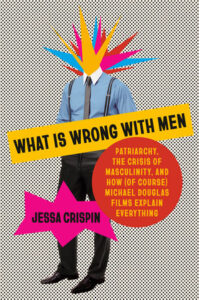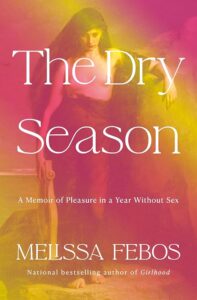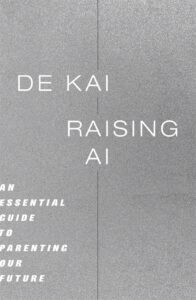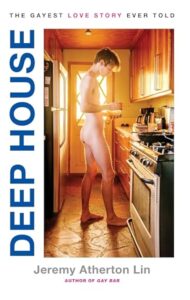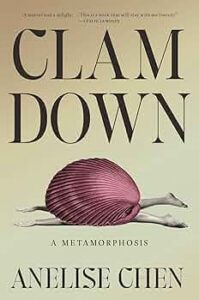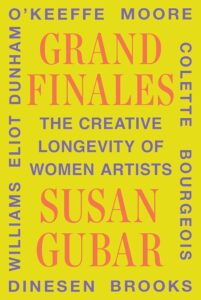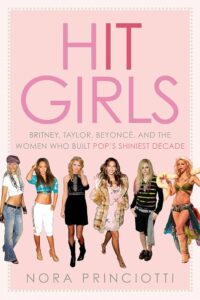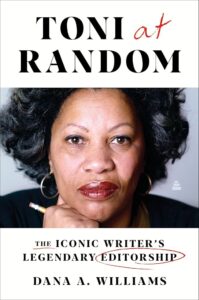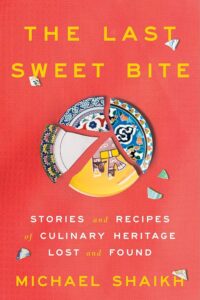Each month, we here at Lit Hub pore over literally hundreds of nonfiction titles—here are ten coming out in May that are worth your time. (Sign up to our weekly nonfiction newsletter for evidence of all that work…)
Article continues after advertisement
*
Jessa Crispin, What Is Wrong with Men: Patriarchy, the Crisis of Masculinity, and How (Of Course) Michael Douglas Films Explain Everything
(Pantheon, June 3)
You’d be forgiven if the words “crisis of masculinity” make you want to throw your laptop into the (muscular, manly) arms of Poseidon, but Jessa Crispin’s astute and wildly funny cultural exploration is well worth pushing past any buzzword-weariness. Through the lens of Michael Douglas’s leading men, Crispin dives into the murky waters of patriarchy, capitalism, and (yes) the crisis of masculinity. This is not only a thought-provoking read, it’s also a great—timely—time.
Melissa Febos, The Dry Season: A Memoir of Pleasure in a Year Without Sex
(Knopf, June 3)
Melissa Febos’s memoir of abstaining from sex and romance in the wake of a disastrous relationship is a gorgeous, profound, and profoundly satisfying exploration of desire, obsession, art, and above all, self. With typical candor and wit, Febos chronicles her transformative period of celibacy while also engaging with the history of brilliant women who sought solitude and found a deeper engagement with themselves. This is Febos at her best.
De Kai, Raising AI: An Essential Guide to Parenting Our Future
(MIT Press, June 3)
If you’re anything like the staff of Lit Hub, you’re likely grappling daily with the existential uncertainty of the future of AI. De Kai, a “pioneer of translation AIs,” is a worthy guide to the dangers and possibilities of the technology. Fascinating and mercifully comprehensible to layreaders, Raising AI situates humans as the adults in the room and explores the ways in which we can and should engage with our “artificial children.” Why not give your dread a little break?
Jeremy Atherton Lin, Deep House: The Gayest Love Story Ever Told
(Little, Brown, June 3)
In 1996, Jeremy Atherton Lin met the boy of his dreams (a Brit) at the same time the US Congress prepares the Defense of Marriage Act, denying same-sex couples federal rights. Deep House follows the couple through a string of rented apartments, connecting them to a lineage of gay men who have come before. Lin juxtaposes his undocumented domesticity with courtroom drama and political stunts, questioning what structures are in place to legitimize love.
Anelise Chen, Clam Down: A Metamorphosis
(One World, June 10)
“Genre-bending” is, perhaps, an overused descriptor, but Anelise Chen’s memoir of navigating the aftermath of divorce as a reclusive bivalve is among the best of the bunch. As funny as its title suggests, Clam Down transcends its conceit to create a personal fable of transformation, family lore, natural history, and adaptation. In Chen’s endlessly engaging prose, this memoir reads like a novel, a fairy tale, a scientific narrative, and more, all at once. Almost impossible to adequately sum up, Clam Down simply demands your time.
Susan Gubar, Grand Finales: The Creative Longevity of Women Artists
(W.W. Norton, June 10)
In 2008, academic and scholar Susan Gubar was told by an oncologist that she had only a few years left to live. Though she outlived that prognosis, the brush with mortality forced her to think about the last years of our lives, and ask: can we shape and change our creative capabilities? In chapters looking at nine women artists: George Eliot, Colette, Georgia O’Keeffe, Isak Dinesen, Marianne Moore, Louise Bourgeois, Mary Lou Williams, Gwendolyn Brooks, and Katherine Dunham—Gubar “draws on their late lives and works to suggest that seniority can become a time of reinvention and renewal.”
Nora Princiotti, Hit Girls: Britney, Taylor, Beyoncé, and the Women Who Built Pop’s Shiniest Decade
(Ballantine, June 10)
Catnip for Old Millennials and lovers of the bops of yore alike, Nora Princiotti’s extremely fun Hit Girls is a rollicking nostalgia fest and a love letter to the women artists whose brilliant music was often overshadowed by the media’s obsession with their personal lives. Princiotti is both a fan and a scholar, and approaches her subject with serious respect, but also with love. Both uplifting and illuminating, Hit Girls is, dare we say, the perfect summer (nonfiction) read.
Lauren O’Neill-Butler, The War of Art: A History of Artists’ Protest In America
(Verso, June 17)
Art is political. Art is political. Art is political. (Though it may seem obvious, if you take a look at the Lit Hub comment section, you’ll understand why it bears repeating!) Lauren O’Neill-Butler’s necessary and surprising history American artists protesting injustice, from government inaction in the face of the AIDS epidemic to… government inaction in the face of the opioid epidemic. O’Neill Butler draws on oral histories to illuminate the stories artists on the front lines of political action.
Dana A. Williams, Toni at Random: The Iconic Writer’s Legendary Editorship
(Amistad, June 17)
Toni Morrison’s contributions to the canon as a writer have been widely documented, but her years as an editor at Random House are often referenced only as a footnote. Toni at Random is a deeply reported, insightful, and page-turning account of Morrison’s ground-breaking editorial work. Williams does an excellent job chronicling Morrison’s transformative impact not only on the individual authors she edited and championed, but also on the wider landscape of publishing.
Michael Shaikh, The Last Sweet Bite: Stories and Recipes of Culinary Heritage Lost and Found
(Crown, June 24)
For nearly twenty years, Michael Shaikh’s job was investigating human rights abuses in conflict zones. Early on, he noticed how war not only changed the lives of victims and their societies, it also unexpectedly changed the way they ate, forcing people to alter their recipes or even stop cooking altogether, threatening the very survival of ancient dishes. Shaikh reveals the stories of how genocide, occupation, and civil war can disappear treasured recipes, but also introduces us to the extraordinary yet overlooked home cooks and human rights activists trying to save them.

